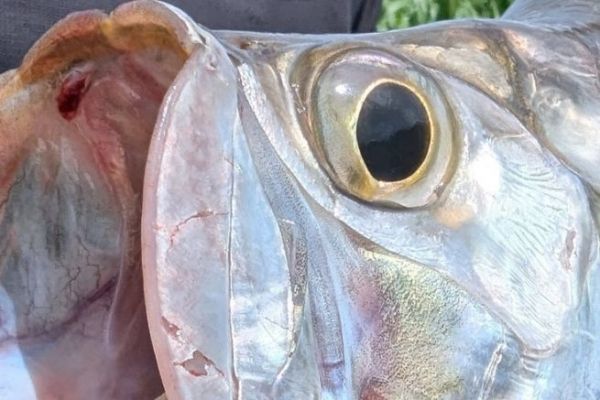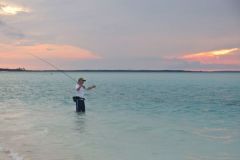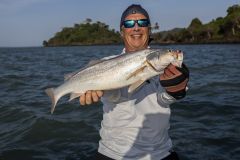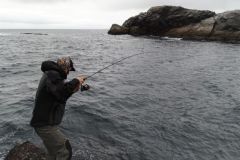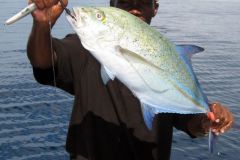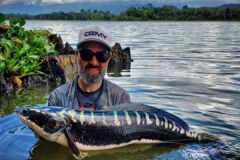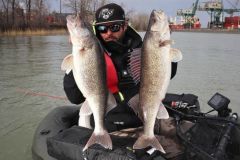Equipment for searching for tarpon
First of all my equipment, nothing very complicated and you have to be rather light to catch these little tarpons. Here's what I used that day:
- Fishing rod : Ilicium 500 (2.40 m) from Caperlan, a rod specially designed for sea lure fishing. It offers the perfect combination of sensitivity and power to target beautiful fish such as tarpon. Don't hesitate to go down to the 2.10 m range for even more sensational fishing.
- Lure of the day: Saxton 75f from Caperlan. This floating lure imitates the natural prey of tarpon to perfection. With its compact size and realistic swimming action, it's ideal for fishing crowded areas like mangroves. Strange as it may be on these massive fish, they take small prey. Don't hesitate to go for natural color and flashy white in these often muddy waters.
- For braid and reel: as for bass! A 3000 with a good drag (some fish approach the metre mark) will do well with PE 1 or 1.2 braid. For fluorocarbon, a 25 hundredth is perfect over a length of 3 or 4 metres to avoid spooking the fish.
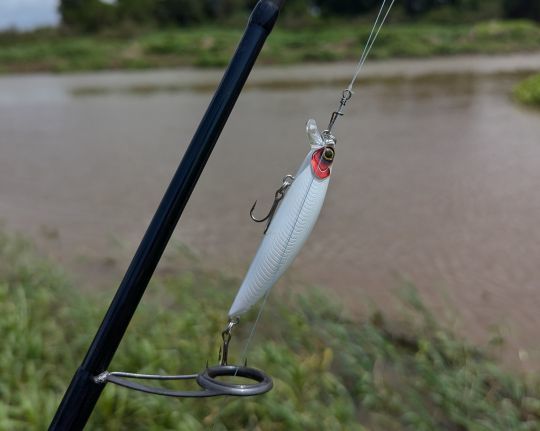
Techniques for tarpon fishing in Martinique
To successfully capture a tarpon, every detail counts. Here are the key steps:
Spotlight selection
Martinique's mangroves and river estuaries are ideal places to find tarpon. These fish often hide in calm waters, close to shady structures and areas rich in prey. Particularly in small carrion carried by rivers.
The perfect moment
Tarpons are particularly active early in the morning and at the end of the day, when the light is soft and temperatures mild. But, as always, there's always the chance of a surprise in the middle of the day. Be careful, though: you're fishing in the mangroves, and the mosquitoes are right at home.
Using the lure
The Saxton 75f is perfect for surface fishing. Cast it close to obstacles (branches, roots) and animate it with varied movements to arouse the interest of predators. One point is essential: the long pause. Don't hesitate to make stops of 2 to 3 seconds. It may seem long, but that's often when you'll get the violent bite.
Fighting technique
Once hooked, the tarpon will fight hard and try to unhook itself by multiplying spectacular jumps. It's crucial to maintain constant tension on the line with a well-adjusted drag. Above all, lower your rod with each jump to restrain the fish downwards. If you don't have this reflex, which I don't always have, you'll unhook quite a few fish.
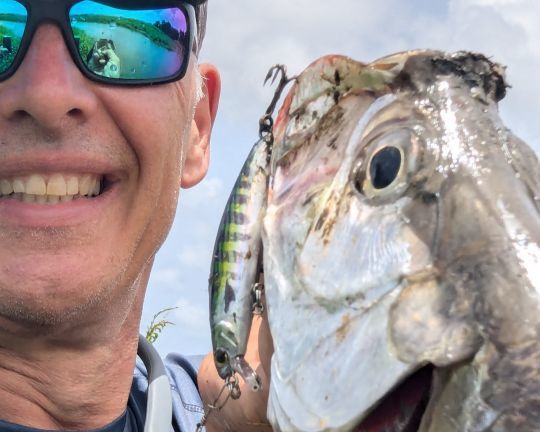
A word of advice: be persistent: tarpons don't always bite easily and can have long periods of inactivity. Be patient and vigilant, keeping an eye on the surface of the water. When they become active, they come to the surface in search of oxygen bubbles, betraying their presence.
Why is tarpon fishing in Martinique unique?
Martinique offers an exceptional setting for sport fishing. With its rich marine biodiversity and magnificent scenery, every outing is an unforgettable adventure. Catching a tarpon, the emblematic fish of the Caribbean, is an experience that will remain engraved in your memory. And I can tell you that while the majority of your fish will be between 40 and 80 cm, you're not safe from seeing a fish over a metre in length that will give you a real thrill and some great memories.
